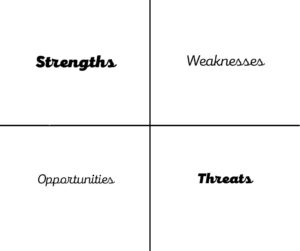Can you be your own therapist?
It’s not can. It’s more like you must be your own therapist, or at least co-therapist.
Even if you can find one. There’s an acute shortage of therapists and other mental health professionals, generally speaking.
Being your own therapist starts the moment after you work up the awareness and courage to face the issues you have. It doesn’t end after you find a therapist to work with. You and only you are ultimately responsible for doing the exercises, reflections, and readings the therapist prescribes. The therapist is a guide leading you toward recovery. You’re the one who has to do the work to try to get better. You’re the one with the most on the line as to whether the therapy leads to healing or not.
Then, if the therapy isn’t working and you’re not making any progress, you’ve got to be the one to pull the plug and find another therapist to work with. That is if you’re going to make progress.
Ultimately, it’s you. No matter how much the therapist cares about you, no matter how skilled they are, you’re the one with the most to gain or lose.
You might not have the official title of “therapist,” but you ultimately enable yourself to get effective therapy so to that extent, you are always your own therapist.
Perhaps, the better question is, can you be your own effective therapist?
And…Do you need a co-therapist? (Meaning a licensed, credentialed therapist to work with.)
That depends.
An analogy can be made with car repair.
There are a variety of jobs that one can do with a car. Some jobs are easier than others. For example, changing your oil, changing your spark plugs, and replacing your brakes. Those three jobs are usually relatively easy tasks to do on many cars. You can learn how in books, on websites, or on video.
Other things you need special knowledge and equipment to do. For example, replacing a set of tires, replacing bearings in your wheels, or rebuilding an engine. While all these jobs might be necessary to operate a car, some jobs are easier than others.
Some people are more mechanically inclined than others. Some people have access to friends and family who can help them out of a tough spot or answer a question about the job when it comes to repairing a car. Some don’t.
So, it is when it comes to fixing ourselves. There are a lot of good tools out there in the form of books, websites, and videos.
How to be your own therapist
There are a lot of different types of therapy and different ways that we can be our own therapists. The first step is to take stock of ourselves. Where are we at? What would we like to do better? What do we wish was different?
Reflect. When it comes to mental health therapy, a good way to do that is by journaling. Pour thoughts, hopes, and fears onto the page with your pen. Sometimes it’s hard to put thoughts into words. If you’re struggling with that, draw pictures.
Make lists. Read inspirational and self-help literature. Take notes. Reflect on the points the author has made. Be active with your reading.
Information from podcasts, videos, and actual therapists should be approached in the same way.
Try to journal every day.
Utilize the variety of tools available to you, such as books, podcasts, videos, actual therapists, and dream analysis, and by having a conversation with yourself.
Pick the media you like the best. Whatever it is, be active with it. Don’t simply listen to what the author or speaker is saying, think about how you’re going to put the advice into practice.
Having a conversation with yourself is asking yourself what you would tell yourself if you or somebody asked your advice. This is a way of dispassionately looking at your problems in the landscape of your life.

Another technique for using your journal to help you navigate life is to list what’s positive, negative, and neutral.
Another thing you can do is a SWOT analysis. SWOT stands for strengths, weaknesses, opportunities, and threats. Divide a sheet of paper into four sections and make a list of each category. A SWOT analysis usually is applied to identifying business and career opportunities and problems, but the format can easily be used for applications beyond that.
When it comes to other forms of therapy, the process is similar. Where are you currently? Where would you like to be? What tools do you have available to you? Are your tools equal to the job at hand?
How does dream journaling fit in with being your own therapist?
If you go to sleep, you’re going to have dreams. If you can understand the symbolism, you can understand what’s happening with yourself and what’s occupying your attention subconsciously.
See “3-Step Dream Interpretation” and “How and Why to Keep a Dream Journal.”
Remember that you could have dreamed of anything at all. Why did you dream what you did?
When you can’t be an adequate therapist for yourself
As with repairing a car, sometimes you’ll get over your head. A car repair manual will discuss how to fix a certain problem. Sometimes what they’re discussing may be unclear due to your understanding of the material or some missing context.
Or you’ll watch a video on repairing a certain kind of car problem, try to do it yourself and then run into some issue that’s not addressed in the video. Sometimes that’s because of an environmental condition but there’s really a lot of different reasons why that could be.
When that happens, you must find a professional mechanic to finish the job if you want to keep using the vehicle. They’ll understand, usually. Chances are they’ve had that happen to them before too. Anybody who fixes things for a living has had that happen to them. Don’t feel ashamed. You did what you could; you tried.
When you try to fix your problems, you will run into that. You might intellectually understand what you need to do and the advice. Yet something about your personal situation will differ from what’s described in the self-help book a video.
People are generally sympathetic to those who try to help themselves. It’s to be commended.
Don’t doubt your ability to help yourself. Nobody knows you and what you’ve been through better than you yourself. You have to permit yourself to try, the permission to fail or to not be perfect.
Yet, realize that it’s okay to seek out help when you’re in over your head.
For further reading:
How to make the most of your healing dream
How to stop thinking about something or someone
Find and keep a great morning routine
Help yourself when you’re enrolled at the School of Hard Knocks
James Cobb, RN, MSN, is an emergency department nurse with over 20 years of experience. He has dealt with many patients who’ve needed therapy, and who’ve gotten it too. He’s also been both successful and unsuccessful with working on his cars.
We use affiliate links. If you click on one of these links and make a purchase, we may receive a commission. This arrangement has no effect on our opinions.
